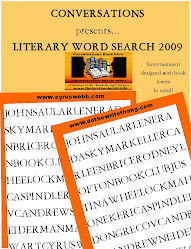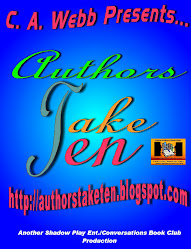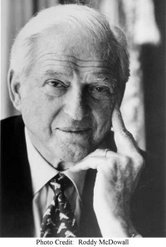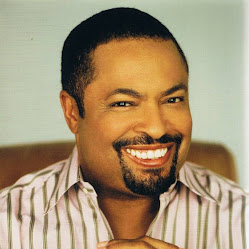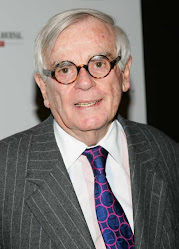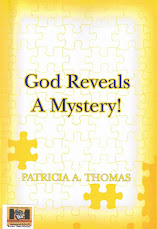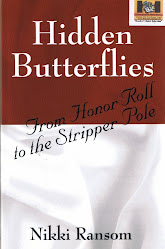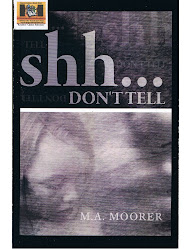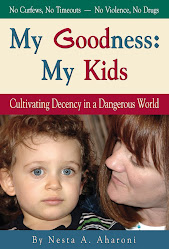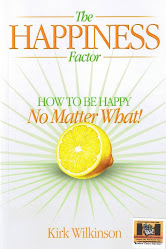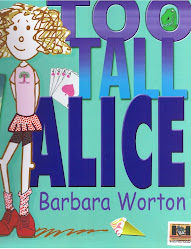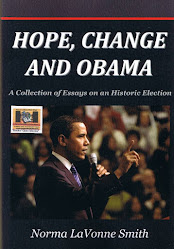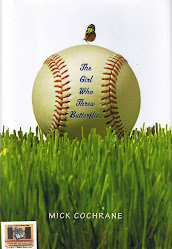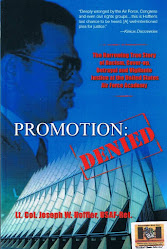You can always tell when someone is a true music lover. When they put the disc of their favorite artist in the cd player, they know exactly what number will give them the song they need for that point in their life. Whether its something to make them smile, bob their head, think about a time when things seemed better or even just that feel-good groove, they know where it is; and it manages to take them to the place they need at that time. No matter how many cds they have in their collection, there is no mistaken who will do what is needed at the time that it is needed the most.
Author Terrance Dean has managed to give us four literary discs containing the "lyrics" of his life complete with chapter titles that will remind you of some of your favorite songs and expressions. In his sophomore project “Hiding in Hiphop”, we travel with him through a life that many can relate to but none can narrate the way that he does.
For months the book was talked about, blogged about and speculated about—yet many of those who seemed the most “knowledgeable” about the world that Dean was bringing to life felt cheated by not getting the dirt that many supposed “tell-alls” offer. Many felt the content didn’t match the hype. For those who were looking to confirm their suspicions about the personal lives of some of the entertainment industry’s most famous names and faces were greatly disappointed, however, one thing that was consistent throughout was what you would expect of a true memoir: the author’s personal search for truth.
On Father's Day (Sunday, June 15, 2008), Dean added another 'hidden track' to the soundtrack of his public life by talking about his son for the first time. Just another way of showing that there is so much to learn about the man who has revealed so much to us.
Here is our conversation. Terrance, thanks for taking out the time to talk with us. I have a lot I want to cover about yourself and the book HIDING IN HIP HOP, but before we begin I have to know this: Are you at all surprised at how the book has been burning up the shelves and websites before and after its release?
Terrance, thanks for taking out the time to talk with us. I have a lot I want to cover about yourself and the book HIDING IN HIP HOP, but before we begin I have to know this: Are you at all surprised at how the book has been burning up the shelves and websites before and after its release? I am completely surprised by the response of the book. I actually thought no one would have an interest in what I had to say as it related to my life. I am extremely thankful and grateful for everyone’s support and love. I am glad that so many people have expressed to me how their lives have been affected by what I have written.
A lot of people may not realize it, but this is actually your second book. Tell us about the first one and why you decided to go ahead and release a memoir. My first book is “Reclaim Your Power! A 30 Day Guide to Hope, Healing, and Inspiration for Men of Color.” (Villard/Random House) It was published in 2003. It is an inspirational guide for men of color to assist them on their spiritual journey. It provides resourceful and compact information for any man struggling on his path and may need a little “Pick me up.”
I decided to release my memoir because I knew I had a story to tell. I had experienced so much in my life and I knew my story was the experience of so many black people. I wanted to encourage and inspire others with a powerful message that would resonate beyond anyone’s personal obstacles or challenges.
There was a lot of buzz around the book months before the release. Many were speculating on what and who you would expose. Did you feel any pressure for the actual book to live up to the hype that had been generated? No, not at all. I only felt the pressure to be truthful to myself and my family and friends. I think a lot of people are caught up in the hype and accuse me of putting that hype out there. If anyone would have read the press releases, they would have discovered that me and my publisher were adamant about making sure that everyone understood it was my memoir, and about my life as a down low man coming to terms with my sexuality. Naturally, everyone gravitated to the more sordid parts of the book and that’s fine, but after people started reading the book, they were shock to discover how good a book it is and how powerful the story.
Let's go ahead and talk about the book. There are so many issues that you address in HIDING IN HIP HOP, and for me that was more important than the people you talked about or didn't talk about. Were you at all afraid that people would focus more on the sideline story than your actual journey as a person? I knew people would focus on the sideline story. I really wanted people to focus on my life and my experiences, but it’s all good. I appreciate that everyone bought the book, and I am glad that they were enlightened afterward. I have received so many e-mails from people around the world stating how they were affected by my story and life. They saw hope for themselves and that’s the power of a book.
Early in the book we learn about how AIDS reared its ugly head in your life. I'm curious if you could talk about the affect of that not just on your family, but how you viewed the disease as a whole. I was in total shock. It was at the height of hitting the black community and no real treatment was in place. The entire nation was shook by the disease and its impact. Me and my family felt immobile and unfortunately I watched three family members die from the AIDS virus – my mother, and two younger brothers. My family was devastated and I truly felt as if my own world was going to end. I didn’t know how to deal with it and for a long time I was silent about it. I didn’t want to tell anyone because it was such a taboo in our community to discuss it. I finally got the courage to say something and in my book I speak of it in a powerful way.
The subtitle of your book is "Confessions of a down low brother in the entertainment industry". In chapter 12 you talk about the plight of the down low man and any man who deals with the issue of his sexuality. You write "I wished that a pill existed I could take to make it all go away. I prayed to God that I would wake up and all feelings for other men would be gone. But no matter what I wished, it remained inside of me." Can you talk about the struggle and the difference between how you felt then and how you feel now? At that time it was a difficult struggle for me because I grew up in the Pentecostal church and it had such a huge impact on my life. I couldn’t do anything for feeling guilty for my thoughts and feelings. I was emotionally and mentally crippled and I wanted so desperately to be a heterosexual man. I wanted to have the wife and kids, things I saw my friends with. However, I knew it was not who I was. I finally got to the point where I was able to be okay with myself and build a relationship with God, and we are in good standing.
You are very candid about relationships you had, and without giving us the details that many want such as names, you manage to do more by telling us about the feelings you had with each one. When it came to Charles and coming to the realization that the two of you couldn't be together---no matter how you felt about him---you write: "I kept picking men who put me second to everything else in their life. Perhaps I didn't love myself enough to let myself be put first. I never thought of myself deserving anything because I felt I didn't come from anything." That lack of love for yourself later drove you to attempt suicide. I'm sure our readers want to know how much you feel as though your earlier experiences affected the decisions you later made, and regretted. I also write in the book that I kept doing the same thing over and over again expecting different results – which is the sign for someone who is crazy. I was mentally not well because I did not see the repercussions of my behaviors. I was young, naïve and thought the many men I was with would somehow end up with us being in monogamous relationships. I learned that no matter what, if a person lies, steals, cheats and deceives the people closes to him, then why wouldn’t he do it to me?
Terrance, you later talk about the feelings you had about going to gay clubs versus straight clubs. In chapter 26 you talk about how you felt more comfortable in straight clubs and could interact with more ease. How much of those feelings were because of the perception of being gay or the way you felt at that time about people who identified themselves as gay in public? It was all about total perception. What I learned about gay people came from conversations by straight/heterosexual people. They helped to formulate my thoughts and ideas about gay people. I didn’t have any gay friends growing up, so what I heard about them was based on the ideology of what I learned from uninformed people. When ignorance is bred and passed along it is difficult to get a person to see another view. My view had been blurred for a long time and I clearly did not have any other resources to help me in understanding what I learned was inaccurate. I am now wiser, stronger, and better.
For me one of the most powerful moments in the book was your coming to grips with who you are and creating Men's Empowerment, Inc. Tell our readers about the organization and what led you to for it. Men’s Empowerment, Inc. is an organization I created to help start a dialogue among black men as it related to their lives, careers, families, and community. I wanted for we as black men to share our ideas, thoughts, and opinions in a safe space and without judgment. I have been fortunate and blessed to surround myself with so many positive and intelligent men who bring so much to the table. They are doctors, lawyers, entertainment executives, presidents of companies, and everyone in between. They challenge and empower one another. It has been one of the most impactful things I have done and been a part of.
After writing HIDING IN HIP HOP, did you know immediately you wanted to publish it or was it originally just for you? I knew I wanted to have it published. A good friend, who is an award-winning R&B singer/songwriter, encouraged me to tell my story. He kept pushing me until I finally put pen to paper. He was the catalyst for me telling my story.
There are many people who share your story and are unsure if they should write about it or how they can use it to help themselves and other people. What would you tell them? Write your story. Tell your truth. You can do anything if you tell the truth. Don’t be afraid and don’t give up. I had some doubts, and we all do as writers, but I am empowered each day by the grace of God and I have a wonderful host of family and friends.
Have there been anyone referenced in the book, Terrance, that has said anything about it either before it was published or since? Many people in the book said something, but they all encouraged me to tell my story. During the process they would check in and see how I was doing. That is genuine love. They supported me during and after the book have been released. It’s a wonderful feeling to have so many loving people in my corner. I am glad that they stood and currently stand by me.
We have had the pleasure to talk a few times prior to this interview. You made an interesting comment to me not long ago. Explain how you feel about describing your book as a "Tell-All" rather than a "Memoir". Well this is my memoir. It is my life, my journey, and my coming out. And I guess people want to categorize it as a tell-all because they liken it to Karrine Steffans book. I unfortunately did not tell anyone’s names. I did not want to ruin anyone’s careers, families, or livelihood. We still have not gotten to the point in the black community where we can talk openly about sex and sexuality. Also, I am not being vindictive and nor am I scorn. I wrote about my life, and I guess you can say it is a tell-all because I tell all my business. However, when any other celebrity or author (white person) writes a memoir and names name their books are seen as memoirs. Unfortunately a black person writes the same book and it becomes a tell-all.
You are going to be working with Conversations Book Club over the next few months in a series of workshops and events. I know people will be anxious to find out where they can find out more about you and your upcoming projects. Where can they go online to keep up with you? People can reach me via my blog:
http://terrancedean.blogspot.com or on myspace:
www.myspace.com/hidinginhiphop Thanks again for this personal interview. What would you like to say to those who have read the book or those who have read this interview and plan on reading it? I would like to thank everyone who has read the book and supported it. You don’t know how much that means to me. I hope that you were able to see the power of the human spirit and how we all can transcend anything in our lives. For those who have not gotten their copy, what are you waiting for? Don’t let others influence you on what and how you behave. I did that for so long and it prevented me is so many ways of doing things I should have done. Don’t be afraid to step out and go against the grain. You will love the book. I am sure of it. This book has everything someone may be going through personally. It’s a testimony and this book will be a healing, insight, and inspiration that they are seeking.
We look forward to working with you in the near future, Terrance. Keep up the great work.Thank you for this amazing interview.
 "Conversations LIVE!" can be found online at http://www.blogtalkradio.com/conversationslive and can be heard online worldwide! Moderated by Conversations President and host, Cyrus A. Webb, this is the author's first LIVE hour-long interview with Conversations about the book that has been written about in Newsweek, Time, Essence and on the internet worldwide. Webb will also discuss how Dean will be working with the HIPHOP AND BOOKS literacy initiative beginning in July 2008.
"Conversations LIVE!" can be found online at http://www.blogtalkradio.com/conversationslive and can be heard online worldwide! Moderated by Conversations President and host, Cyrus A. Webb, this is the author's first LIVE hour-long interview with Conversations about the book that has been written about in Newsweek, Time, Essence and on the internet worldwide. Webb will also discuss how Dean will be working with the HIPHOP AND BOOKS literacy initiative beginning in July 2008. "Conversations LIVE!" can be found online at http://www.blogtalkradio.com/conversationslive and can be heard online worldwide! Moderated by Conversations President and host, Cyrus A. Webb, this is the author's first LIVE hour-long interview with Conversations about the book that has been written about in Newsweek, Time, Essence and on the internet worldwide. Webb will also discuss how Dean will be working with the HIPHOP AND BOOKS literacy initiative beginning in July 2008.
"Conversations LIVE!" can be found online at http://www.blogtalkradio.com/conversationslive and can be heard online worldwide! Moderated by Conversations President and host, Cyrus A. Webb, this is the author's first LIVE hour-long interview with Conversations about the book that has been written about in Newsweek, Time, Essence and on the internet worldwide. Webb will also discuss how Dean will be working with the HIPHOP AND BOOKS literacy initiative beginning in July 2008.